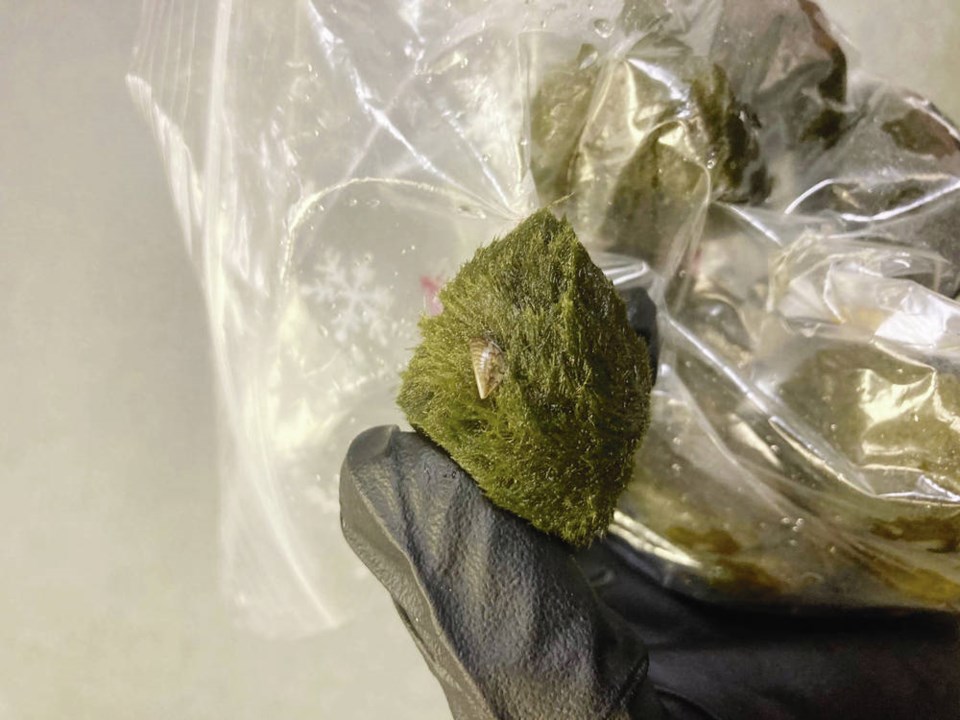The U.S. Geographical Survey is studying potential methods to help control zebra mussels that are already established in some states, such as low-dose copper applications, carbon dioxide and microparticle delivery of toxicants.
Quagga and zebra mussels, about the size of a fingernail and much smaller than B.C.’s native species, were introduced by trans-continental shipping from the Baltic Sea to the Great Lakes region in the 1980s.
They have spread in Ontario and Quebec and are now found in 24 U.S. states as far west as California. In 2013, zebra mussels were discovered in Lake Winnipeg, while in 2016, invasive mussels were confirmed in the Tiber Reservoir in Montana.
Gail Wallin, executive director of the Invasive Species Council of British Columbia, said to date, there has been no reported introduction of live zebra mussels into B.C. lakes or waterways, but other invasive species have caused serious damage.
Wallin said some of the most serious invasive species were originally sold as pets or plants for water gardens and aquariums.
She said goldfish released by pet owners have caused serious damage in B.C. lakes, eating fish eggs and small invertebrates while breeding rapidly and growing to more than 20 centimetres.
Other former pets released into the wild and disrupting natural ecosystems include the red-eared slider turtle, American bullfrog, European rabbit and Koi carp.
The Eurasian watermilfoil, an aquarium plant, is another invasive species taking root in small streams.
Ty Hahn, who owns Creatures Pet Store on Blanshard Street and the online portal Aquarists Across Canada, said his pet store has a “surrender system,” where people can bring in fish or plants they can no longer care for. New homes are found or the fish or plants can be disposed of in an ethical manner.
For more information, go to bcinvasives.ca.



